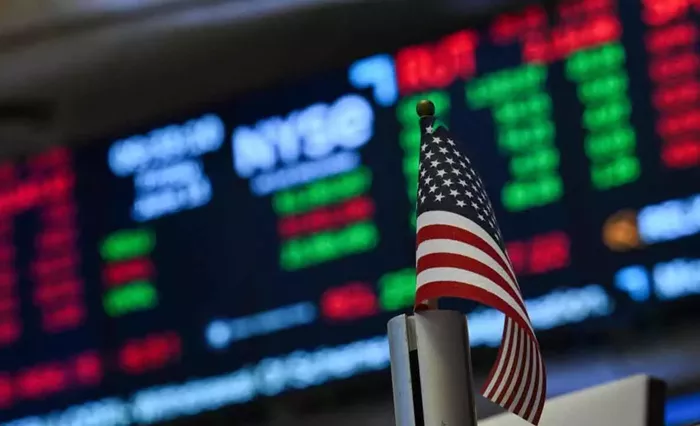U.S. stocks dropped sharply on Tuesday, dragged down by a sudden spike in oil prices and renewed fears about growing tensions between Israel and Iran. The market’s optimism from the day before quickly faded.
The S&P 500 fell 0.8%, nearly erasing its recent gains. The Dow Jones Industrial Average lost 299 points (0.7%), while the Nasdaq composite slid 0.9%.
Oil prices surged as concerns about Middle East stability returned. U.S. benchmark crude jumped 4.3% to $74.84 per barrel. Brent crude, the international standard, climbed 4.4% to $76.45.
The sharp rise followed a series of provocative statements from former President Donald Trump. On his social media platform, Trump called for “UNCONDITIONAL SURRENDER!” from Iran and noted the U.S. would not move against Iran’s leadership “at least for now.”
Earlier, Trump had exited the G7 summit early, urging citizens in Tehran to evacuate. These comments marked a dramatic shift, as only hours earlier, he had hinted at a potential nuclear agreement with Iran.
Geopolitical analysts fear the conflict could disrupt oil supply routes, especially through the Strait of Hormuz, a critical passageway for global crude shipments. Historically, conflicts in this region have caused short-term spikes in oil prices, though long-term disruptions are rare.
Typically, higher oil prices make solar energy more attractive. But on Tuesday, solar stocks fell sharply due to concerns that U.S. lawmakers may cut key tax credits for renewable energy.
- Enphase Energy dropped 24%
- First Solar tumbled 17.9%
The potential rollback of government support for clean energy has made investors nervous, even as fossil fuel prices soar.
Investors also reacted to disappointing U.S. retail sales data. Americans spent less in May compared to April, raising concerns that one of the economy’s strongest drivers—consumer spending—may be slowing.
Some economists noted that the slowdown could be a return to normal, especially after a surge in auto purchases in April ahead of expected tariffs.
Ellen Zentner, chief U.S. economist at Morgan Stanley, said, “Today’s data suggest consumers are downshifting, but they haven’t slammed the brakes.”
The Federal Reserve began a two-day meeting Tuesday. While no interest rate changes are expected, Wall Street is closely watching for updates to the Fed’s forecasts on inflation, economic growth, and future rate decisions.
Inflation remains near the Fed’s 2% target, giving the central bank little urgency to act. The Fed paused its rate changes earlier this year to observe the impact of Trump’s tariffs and global market shifts.
The 10-year Treasury yield fell to 4.38%, down from 4.46% the previous day, signaling more caution from bond investors.
Amid the market slump, a few companies stood out:
Jabil rose 8.9% after reporting better-than-expected quarterly profits, boosted by demand in the AI sector.
Verve Therapeutics skyrocketed 81.5% after pharmaceutical giant Eli Lilly announced a deal to buy the company. The acquisition is valued at up to $1.3 billion. Lilly’s stock, however, dipped 2%.
Outside the U.S., most European markets closed lower, reflecting the day’s cautious tone. In Asia, the mood was mixed.
Japan’s Nikkei 225 gained 0.6% after the Bank of Japan left its interest rates unchanged. The central bank has slowly been tightening its policies to curb inflation but chose to hold steady for now.
Data Recap:
S&P 500: ↓ 50.39 points to 5,982.72
Dow Jones: ↓ 299.29 points to 42,215.80
Nasdaq: ↓ 180.12 points to 19,521.09
Related topics:


